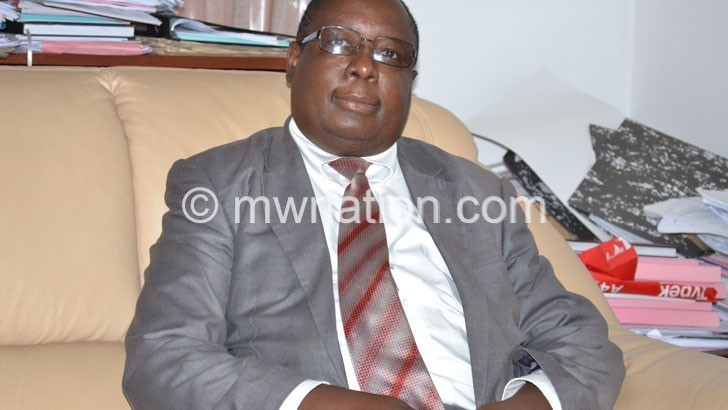Concerns over short budget session
Some political parties have raised fears that the scheduled four weeks for a budget session of Parliament is too short and may force the majority new legislators to rubber-stamp instead of debating the budget.
Parliament announced that it will convene the second meeting of the 48th Session to discuss the 2019/20 National Budget from September 9 to October 11 2019.
But in separate interviews on Sunday, several party representatives, especially from the opposition side, described the period as too short for a thorough analysis of the budget.

Malawi Congress Party (MCP) chief whip Sam Kawale said the time is limited given that a budget session is a critical meeting which needs a lot of time.
He said: “Four weeks is not enough time. It is unfortunate that we will be meeting in a shorter time than usual. A budget session is a critical meeting and we should never take time away from this period.”
Traditionally, Budget sessions have covered eight weeks, which included technical committees breaking into clusters to scrutinise the budget and later reconvening for members of Parliament (MPs) to further scrutinise the economic blueprint vote by vote, before it is passed.
Kawale’s remarks were backed by independent legislator Kamlepo Kalua and People’s Party spokesperson Ackson Kalaile Banda, who feared that the little time may give Malawians a raw deal.
Said Kalua: “We may not be able to properly scrutinise and articulate the issues concerning the budget. Some members may pass the budget without understanding it, or knowing what is really in the budget. The time should have been extended.”
But when contacted, Parliament spokesperson Leonard Mengezi asked for more time to respond. He was yet to respond to our questions at press time.
Meanwhile, Malawi Economic Justice Network (Mejn) executive director Grace Kumchulesi has expressed hope that, despite the short session, the budget to be presented would be pro-poor.
She said that Mejn expects the budget to be discussed adequately to allow for an inclusive document.
Said Kumchulesi: “I hope they have good reasons for that. But as Mejn, our expectation is that they will give adequate time to discussions that will ensure that the budget is pro-poor and inclusive. Among other things, the budget should be aligned to the key priority areas of MGDS [Malawi Growth and Development Strategy] III, and should be youth and gender-sensitive.”
On his part, parliamentary Budget and Finance Committee chairperson Sosten Gwengwe and the committee’s immediate past chairperson Rhino Chiphiko both described the period for the budget session as short.
Said Gwengwe: “The time is short, but we don’t have a choice. We need a new mandate to run the affairs of the country, as we are coming from elections and we only have a four-month provisional budget. Going forward, we need to come up with a budget that will benefit Malawians—more of investment than consumption and borrowing.”
Chiphiko was worried that many votes will be passed without proper scrutiny.
He said: “Again, as has been the practice, there will be a lot of hidden expenditures that Parliament will rubber stamp. And since most of the MPs are new, it is highly likely that the budget will not deliver the spelt out programmes.”
After the May 21 Tripartite Elections results which are being disputed in the Constitutional Court in Lilongwe, there has been growing political tension that manifested in Parliament during its June-July sitting this year when government and opposition members tussled before passing a provisional budget which allowed government to release K511.3 billion.
Some legislators challenged new Minister of Finance, Economic Planning and Development Joseph Mwanamvekha to justify what they described as unrealistic assumptions in the provisional budget which, nonetheless, they ended up approving.
During pre-budget consultative meetings in July, the Economics Association of Malawi (Ecama) asked Treasury to cut public debt and narrow the budget deficit if the country is to sustain its economic gains.
As part of its input to the 2019/20 Budget, Ecama also wanted Treasury to maintain the prevailing macroeconomic stability in the next fiscal plan.
Public debt, which comprises domestic and external debt, stood at around K3.3 trillion as of December 2018, twice the country’s 2018/19 revised national budget of K1.4 trillion and an estimated 72 percent of the country’s total wealth, as measured by nominal GDP.





